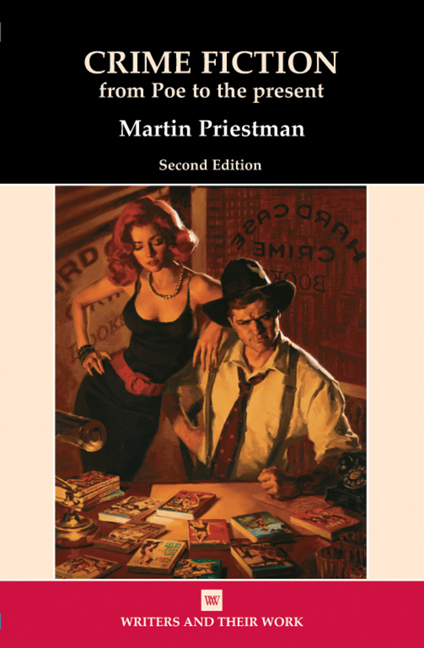Book contents
- Frontmatter
- Contents
- Acknowledgements
- A Chronology
- Introduction
- 1 The Detective Whodunnit from Poe to the First World War
- 2 The Detective Whodunnit from Christie to the Present
- 3 The Noir Thriller
- 4 The Hero-Thriller
- 5 Private Eyes: The Detective Thriller
- 6 Serial-killer Fiction and Other Developments
- Conclusion
- Notes
- Select Bibliography
- Index
6 - Serial-killer Fiction and Other Developments
- Frontmatter
- Contents
- Acknowledgements
- A Chronology
- Introduction
- 1 The Detective Whodunnit from Poe to the First World War
- 2 The Detective Whodunnit from Christie to the Present
- 3 The Noir Thriller
- 4 The Hero-Thriller
- 5 Private Eyes: The Detective Thriller
- 6 Serial-killer Fiction and Other Developments
- Conclusion
- Notes
- Select Bibliography
- Index
Summary
Despite the variants discussed in the last three chapters, the detective whodunnit has remained the king of the crime jungle. However, it has often had to adapt to survive, and these adaptations are most frequently in the form of escalations towards more violence and murder. As the robberies of The Moonstone and many Holmes stories gave way to the now mandatory but often single murder of Christie, and then to the trails of more frequent ‘murders for reasons’ of the hardboiled detective thriller, so all of these have been trumped since the 1980s by one of the genre's most persistently successful re-adaptations: the subgenre centred on serial killers. Though one killing had often led to another in earlier plots, this was usually for purposes of cover-up or revenge: in this new form, the murderer repeatedly kills to satisfy some obsession, with no end in sight until caught or killed in a tense stand-off with the hero.
In a great many cases, the killer's motive is sexual: combined either with rape or some further contortion in which the exercise of power compensates for inadequacy in the sphere of normal sexual relations. As such, it is part of a spectrum of monstrosity which has also put paedophilia and other kinds of sexualized power-abuse at or near the heart of a great deal of post-1970s crime fiction. In the case of paedophilia, a number of well-publicized investigations since the mid-1980s (such as that in Cleveland in the UK, 1987) have led to growing public awareness of a hitherto buried problem, which has developed into important exposures of parents, priests and other supposed carers who have abused their positions, and has duly found its reflection in a great deal of crime fiction looking for something worse to uncover than simple murder for gain. The idea of this new potential horror lurking at the heart of outwardly respectable family life or moral guardianship has offered the whodunnit genre many highly effective final twists, but perhaps also encouraged an atmosphere of moral panic leading to false accusations and even riots – a further situation which has, in its turn, also had some reflection within the genre.
- Type
- Chapter
- Information
- Crime Fictionfrom Poe to the present, pp. 65 - 74Publisher: Liverpool University PressPrint publication year: 2013



